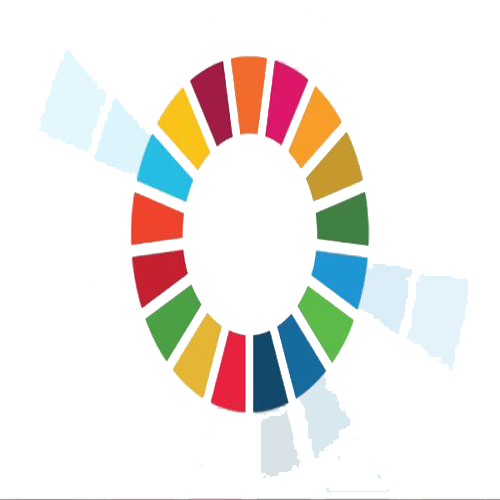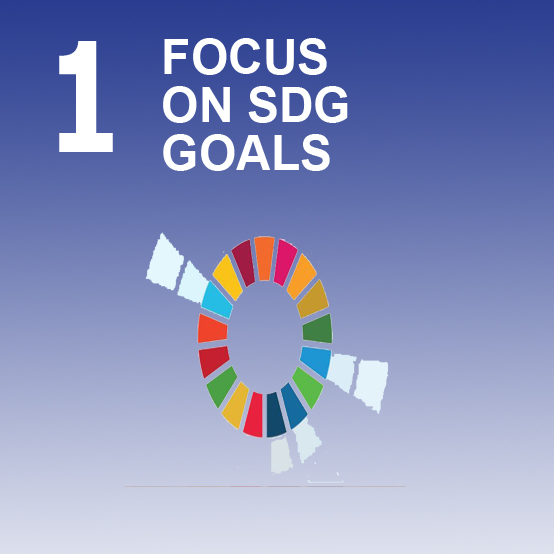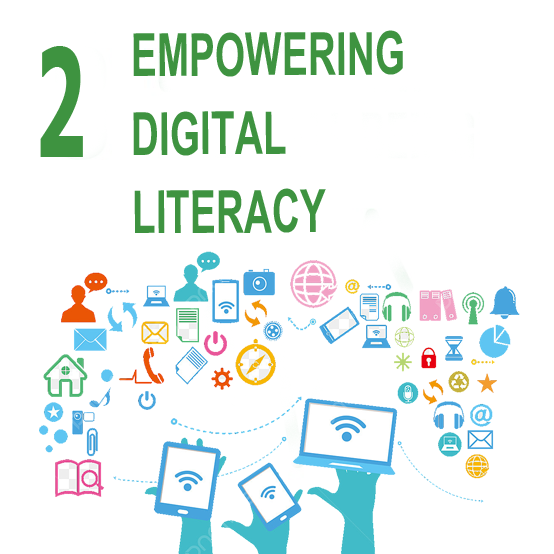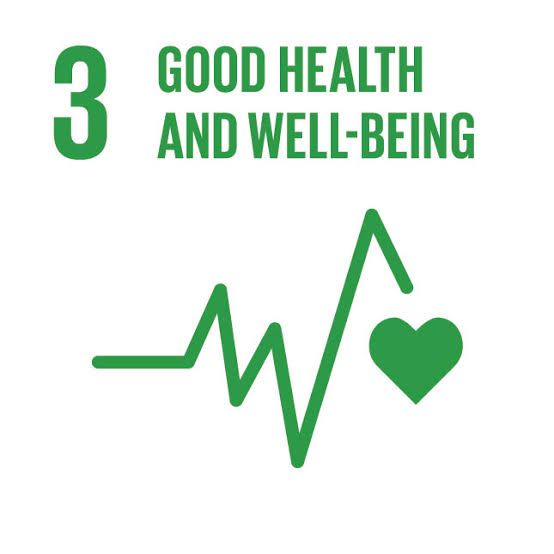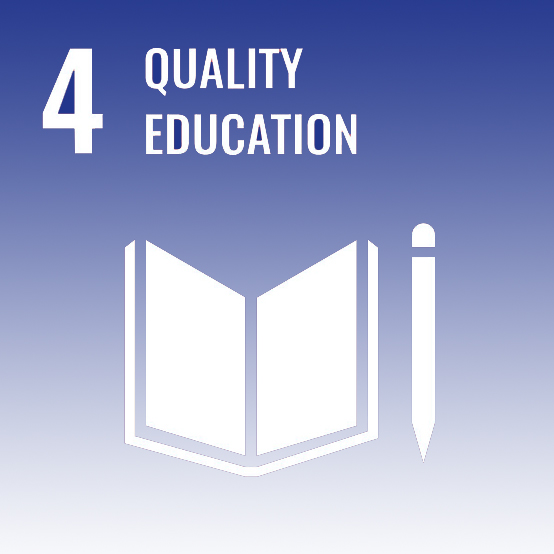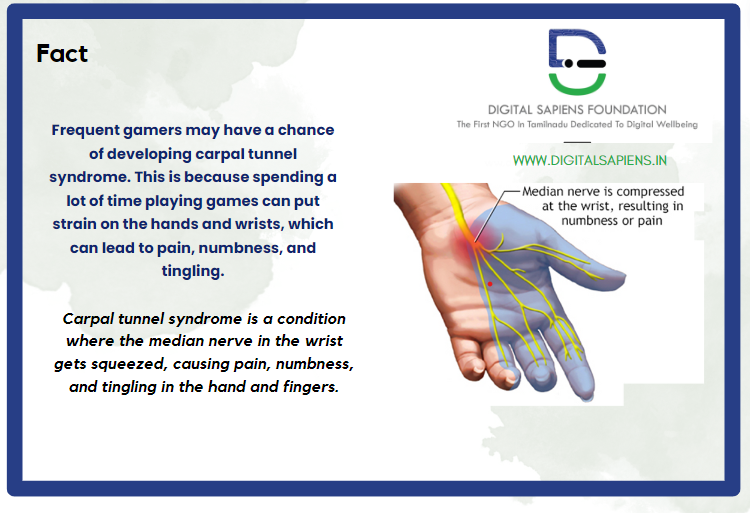






By prioritizing both digital and social wellbeing, and through our CSR activities and awareness campaigns, we strive to create a brighter future for the youth of Tamil Nadu.

Digital Sapiens Foundation is dedicated to promoting the holistic wellbeing of young people in Tamil Nadu. Through education, support, and advocacy, our mission is twofold: to create a healthier and happier digital generation while nurturing social wellbeing within our communities.
SDG ( Sustainable Development Goals )
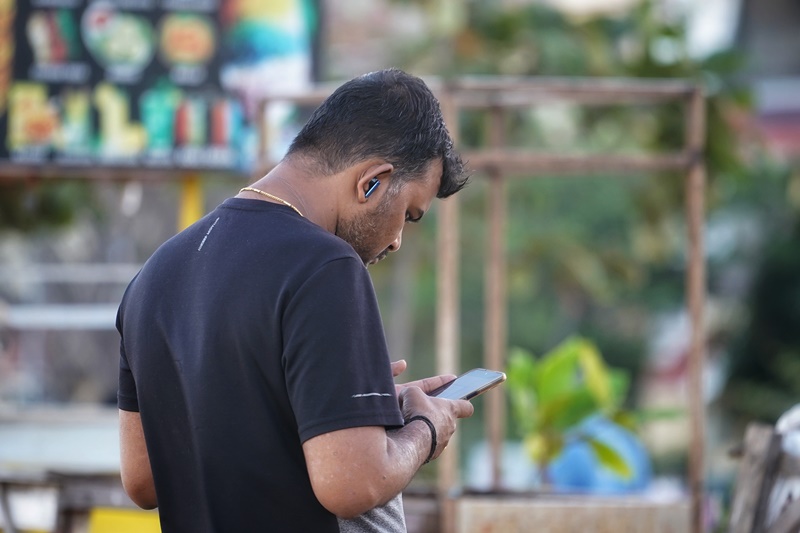
In addressing digital wellbeing, we focus on raising awareness about internet addiction and compulsive smartphone usage among youth. Through surveys and scientifically-driven approaches, we assess digital dependence levels and offer tailored solutions to help individuals achieve a healthier balance in their digital lives. Our interactive sessions and health workshops provide practical guidance and support for managing digital habits effectively.
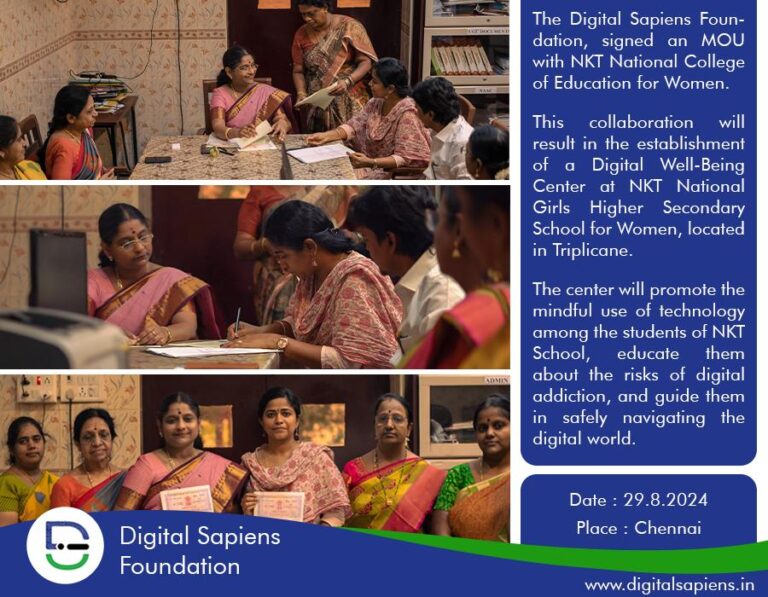
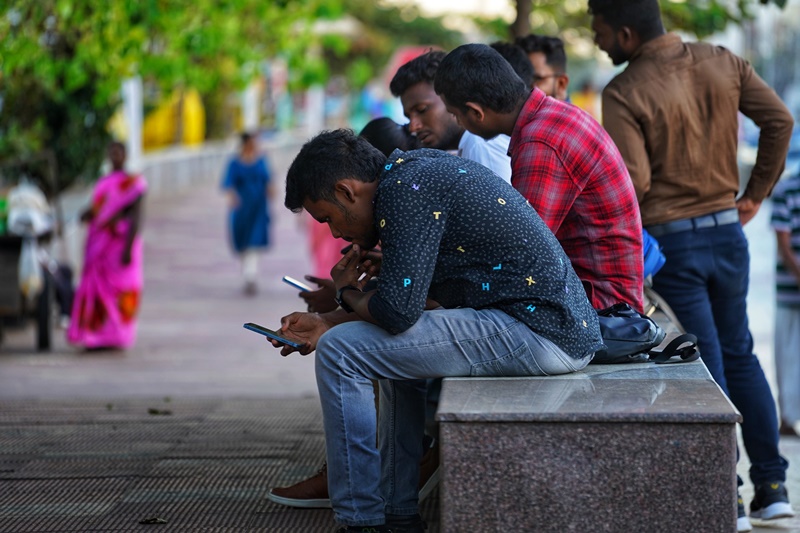
Additionally, we actively engage in Corporate Social Responsibility (CSR) activities and awareness campaigns to address various health issues prevalent in society. These initiatives include organizing volunteer projects, conducting health camps, and collaborating with local organizations to provide resources and support to underserved communities. Through our CSR efforts, we strive to make a positive impact on the health and wellbeing of individuals beyond our immediate reach.
What we do...
By prioritizing both digital and social wellbeing, and through our CSR activities and awareness campaigns, we strive to create a brighter future for the youth of Tamil Nadu.
Research
Conducting assessments and studies to understand the digital well-being of students in educational institutions. Personal, Academic Consulting: Providing individualized support and guidance to students who are struggling with compulsive technology use.
Tailored Workshops
Offering workshops on various topics related to the use and abuse of technology, aimed at educating students about healthy digital habits.
Assessing Internet Addiction Levels
Conducting assessments and studies to understand the digital well-being of students in educational institutions. Personal, Academic Consulting: Providing individualized support and guidance to students who are struggling with compulsive technology use.
Balancing Digital Wellbeing and Employee Productivity
Balancing digital wellbeing with productivity is vital in today's tech-driven workplace. By managing screen time, encouraging regular breaks, and setting clear boundaries for digital communication, employees can stay focused and energized. This balance not only boosts productivity but also promotes long-term well-being.
Balancing Digital Wellbeing and Employee Productivity
Balancing digital wellbeing with productivity is vital in today's tech-driven workplace. By managing screen time, encouraging regular breaks, and setting clear boundaries for digital communication, employees can stay focused and energized. This balance not only boosts productivity but also promotes long-term well-being.

Teacher Training
Conducting Training of Trainers (TOT) programs for teachers to equip them with knowledge and skills to address technology addiction among students.

Parent Guidelines
Providing suggestions and guidelines to parents on how to help their children overcome addiction and develop healthy technology habits.

Designing Manuals
Creating manuals and resources that offer strategies and techniques to overcome technology addiction and to promote digital wellbeing.

Digital Media Literacy Workshops
Conducting workshops focused on enhancing digital media literacy skills among students, promoting responsible and informed technology use.

Advocacy and Policy Making
Collaborating with government entities to advocate for and contribute to the development of policies related to the digital well-being of children and youth in schools and colleges.
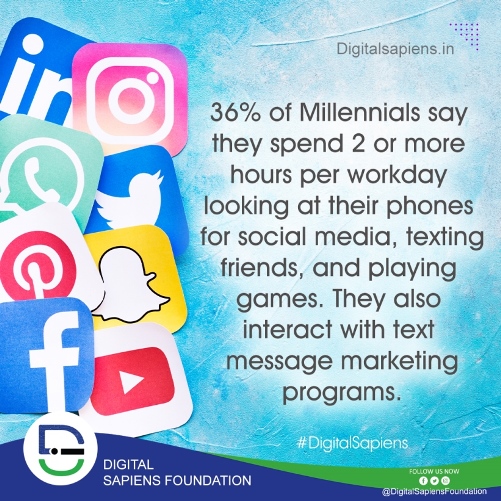
Additionally, we actively engage in Corporate Social Responsibility (CSR) activities and awareness campaigns to address various health issues prevalent in society. These initiatives include organizing volunteer projects, conducting health camps, and collaborating with local organizations to provide resources and support to underserved communities. Through our CSR efforts, we strive to make a positive impact on the health and wellbeing of individuals beyond our immediate reach.
Digital Sapiens...
Facts...

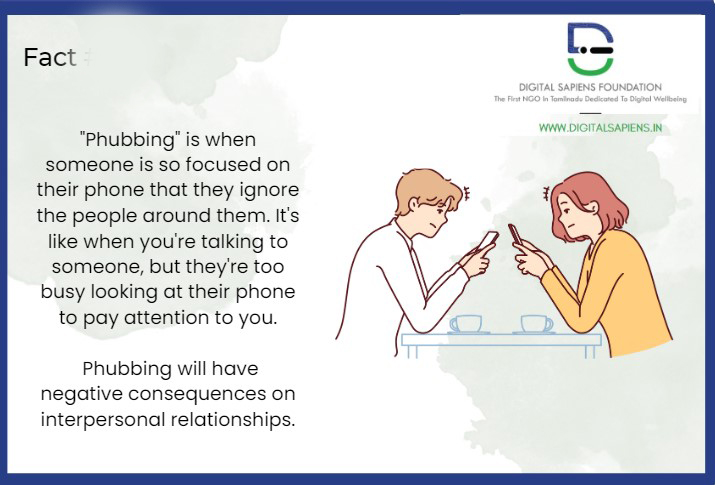
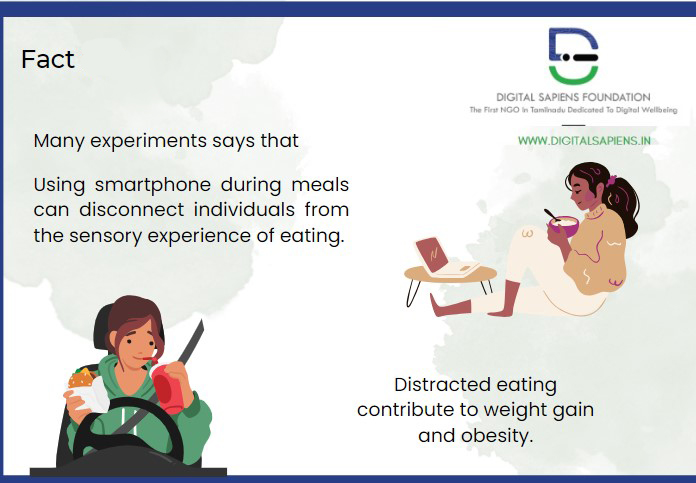
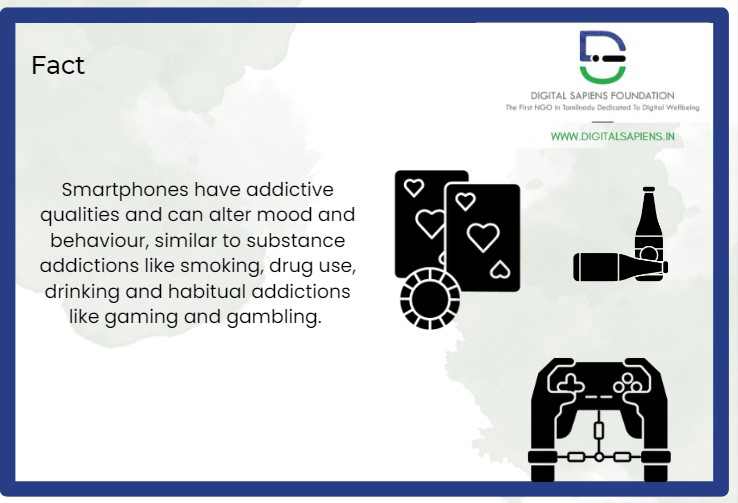
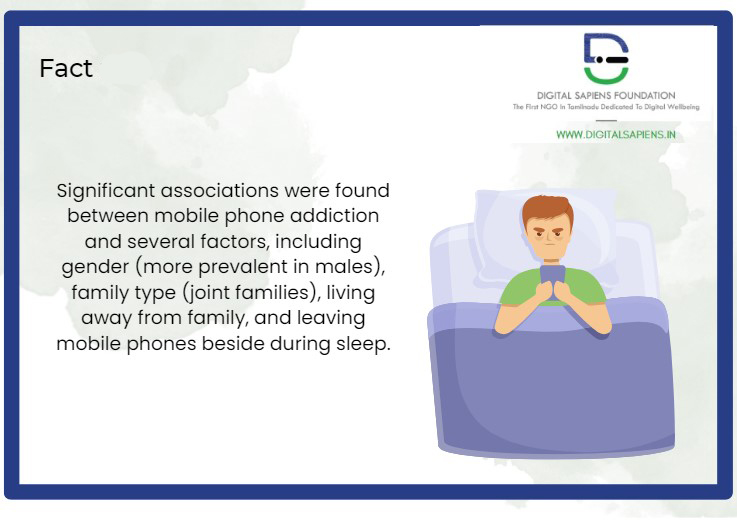
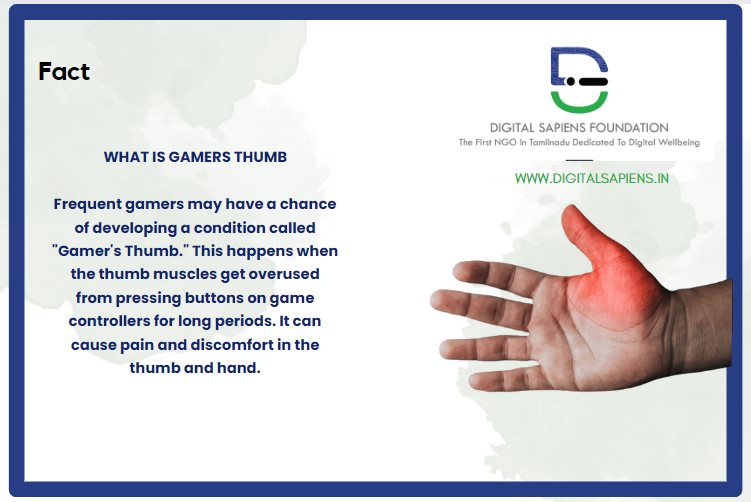
Digital Sapiens Foundation
We’re here to assist you in any way we can info@digitalsapiens.in
Our Services

By prioritizing both digital and social wellbeing, and through our CSR activities and awareness campaigns, we strive to create a brighter future for the youth of Tamil Nadu.
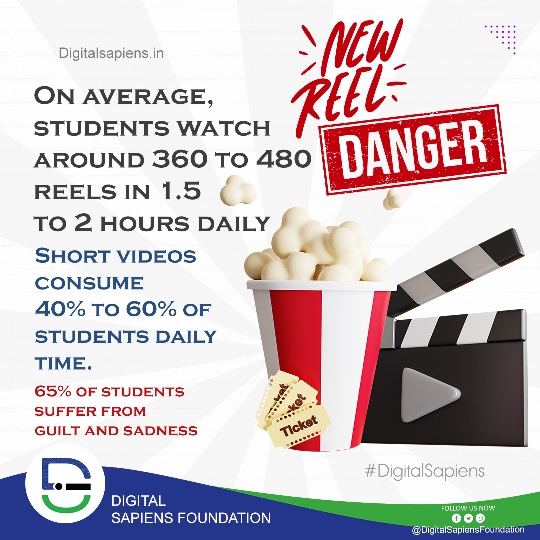
Social Awareness Programmes
Program for Plus 2 Students: “Creating a No Gadget Zone Before Exams”
Conducted specialized sessions to help Plus 2 students establish distraction-free study environments before exams, emphasizing the importance of managing digital distractions.
Noted increased student engagement and participation in implementing personalized study spaces conducive to effective learning.
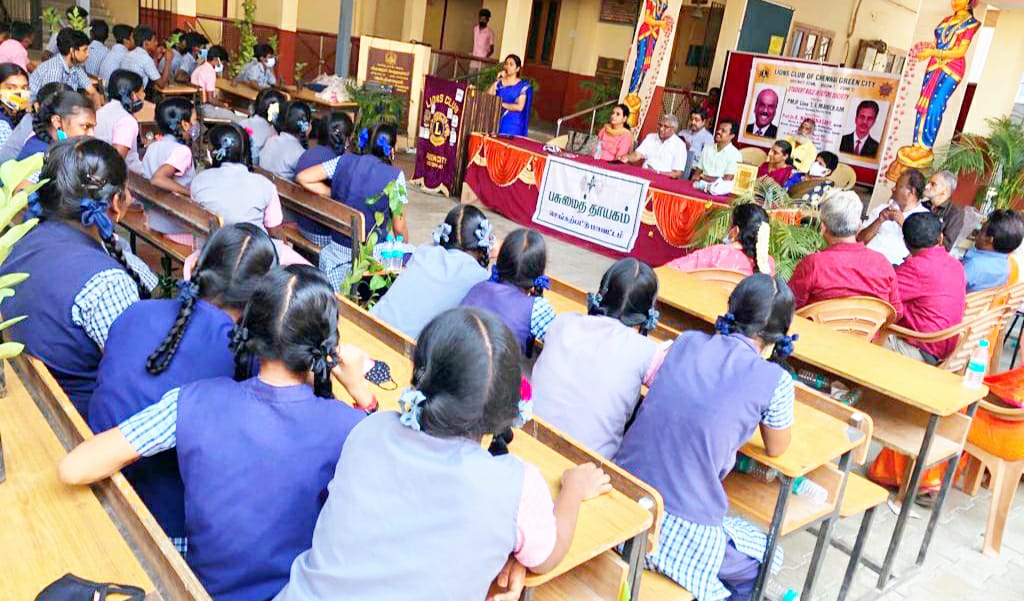
Empowering Digital Literacy
Digital Detox Camp: Encouraging Offline Activities and Engagement
Organized a successful digital detox camp where participants disconnected from smartphones and engaged in offline activities, fostering social interaction and personal growth.
Participants reported decreased screen time and improved mood during the camp, highlighting the benefits of unplugging and reconnecting with the physical world.
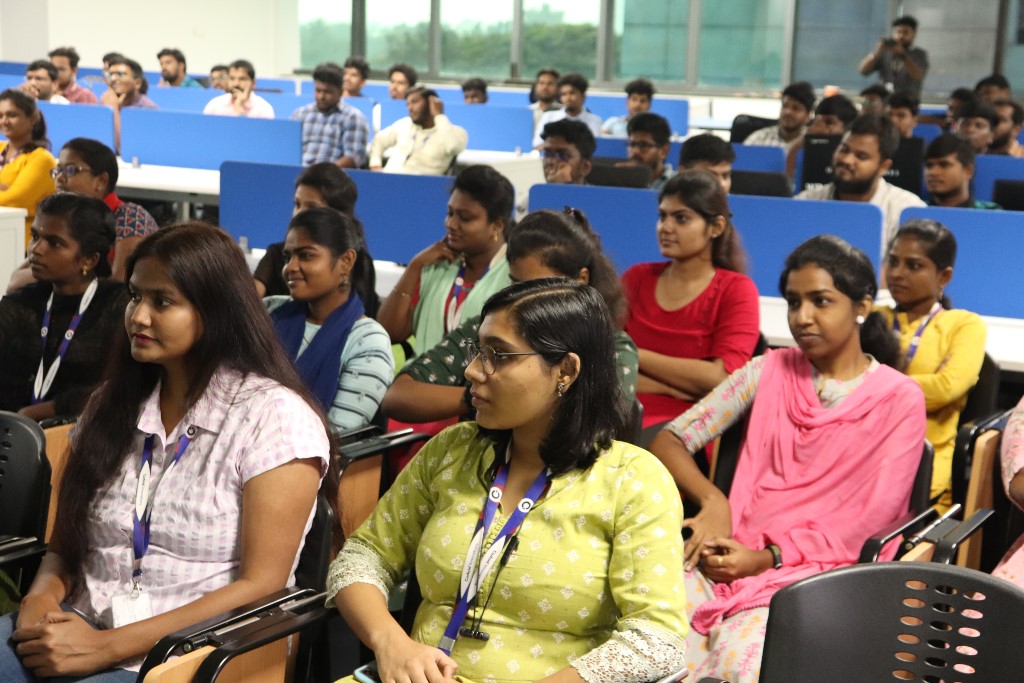
CSR Activities
Our CSR activities include a variety of initiatives to benefit the community. These involve our *awareness campaigns* to educate people on important topics, *digital literacy programs* to teach basic computer skills, and *health checkup camps* offering free medical checkups. Other activities include our *media entrepreneurship course* that teaches skills like photography and video editing, and *media education* programs that help people understand and use media responsibly. These efforts aim to support and empower individuals and communities.

FAQ
What is Internet Addiction Disorder (IAD)?
Internet Addiction Disorder is a behavioral disorder characterized by excessive and compulsive internet use, leading to negative impacts on daily life.
What are the symptoms of IAD?
Symptoms include excessive internet use, withdrawal symptoms, tolerance, loss of interest in other activities, and continued use despite negative consequences
What causes IAD?
Causes include easy access to the internet, social isolation or loneliness, mental health conditions, and personality traits like impulsivity and low self-esteem.
How is IAD diagnosed?
Diagnosis is based on clinical interviews, questionnaires, and behavioral observations.
What are the consequences of IAD?
Consequences include social relationships problems, work or school performance issues, sleep disturbances, eye strain, and negative impacts on mental health.
How is IAD treated ?
Treatment includes cognitive-behavioural therapy, psychodynamic therapy, support groups, medications, and digital detox.
Can IAD be prevented ?
Prevention strategies include healthy internet use habits, balancing online and offline activities, setting boundaries, and seeking help for underlying mental health conditions.
Is IAD a recognized mental health condition?
Yes, IAD is recognized as a mental health condition by many organizations, including the American Psychiatric Association.
How common is IAD ?
IAD affects approximately 6-10% of the general population, with higher rates among young people and heavy internet users.
Where can I get help for IAD ?
You can seek help from mental health professionals, support groups, and online resources.
© 2022 All Rights Reserved.
